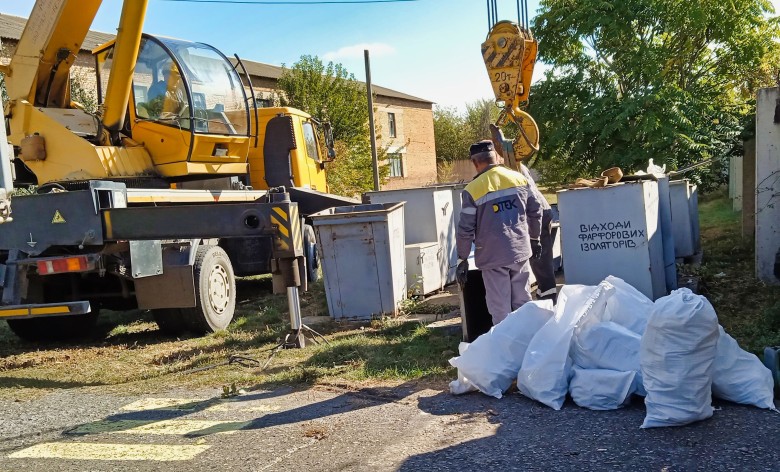Protecting environment despite the war: 2,500 tons of DTEK Dnipro Grids waste got a second life last year

Last year, DTEK Dnipro Grids sent more than 2,500 tons of waste for recycling for further reuse – 73% of the overall amount. These are, in particular, construction materials, used tires, wastepaper, glass, plastic, oil product waste, etc.
“Our enterprise does not stand aloof from the global processes. Despite the war, we continue to implement principles of circular economy in the field of waste management in particular. We collect, sort, preserve used materials and send them to specialized companies for recycling or further reuse. Thus, over the past three years more than 11,000 tons of DTEK Dnipro Grids production waste got a second life. For instance, more than 9,000 tons of reinforced concrete poles were used in construction and for production of crushed stone,” – noted DTEK Dnipro Grids CEO Andrii Tereshchuk.
The DSO uses more than 1 thousand marked vessels (containers) for sorting and storing of waste. Everything is arranged in a manner to prevent any negative impact on the environment and direct waste for recycling and further reuse as much as possible.
DSO employees undergo regular training for correct sorting and storing of waste and are encouraged to this way of life not only at work, but at home too.
Additionally, DTEK Dnipro Grids supports public environmental initiatives. Project “Precious Plastic” for instance. In 2023, it helped collect and send 188 kg of plastic for reuse: 150 kg of plastic from disassembly of written-off furniture and 38 kg of polymer caps. Since 2021, a total of 216 kg of plastic materials were collected and sent for recycling to be further used as a valuable recyclable material.

